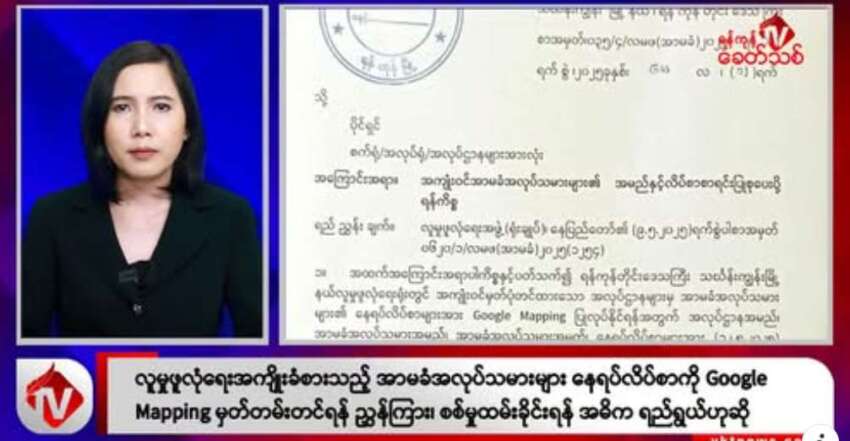
The military council has issued directives to social security offices nationwide requiring detailed documentation of social security beneficiaries’ personal information using Google Mapping. Labor rights activists have confirmed that these offices are now required to precisely record workers’ names and complete addresses on digital maps. This systematic documentation effort has raised concerns among activists about increased surveillance and control over workers. The detailed mapping of beneficiaries’ locations represents a new level of monitoring that could potentially be used for further restrictions on workers’ movements and activities.
Reports from the Political Prisoners Network Myanmar (PPNM) indicate severe deterioration in prison conditions across Myanmar. Central Committee member Ko Thet Tun Oo revealed that prisoners are being fed only rice and watery bean soup due to alleged budget constraints. This reduction in food rations has led to widespread malnutrition among inmates. The situation is particularly concerning as it appears to be affecting all detention facilities across the country, with political prisoners potentially being subjected to these conditions as a form of systematic oppression. The inadequate nutrition poses serious health risks to the prison population, with reports of increasing health issues among detainees.
Intense fighting has erupted along the Thai-Myanmar border, where Karen National Liberation Army (KNLA) and allied forces have launched an offensive against the military council’s Maw Pho Kay military outpost. The escalating conflict has forced approximately one hundred local residents to flee across the border into Thailand seeking safety. Local sources express growing concern about the impact of increased military tensions along the border region on civilian safety and daily life. The displacement of civilians highlights the ongoing humanitarian challenges faced by communities in conflict-affected areas, with many forced to abandon their homes and livelihoods due to the fighting. The situation continues to deteriorate as military operations intensify in the border regions, creating additional challenges for humanitarian assistance and civilian protection.



